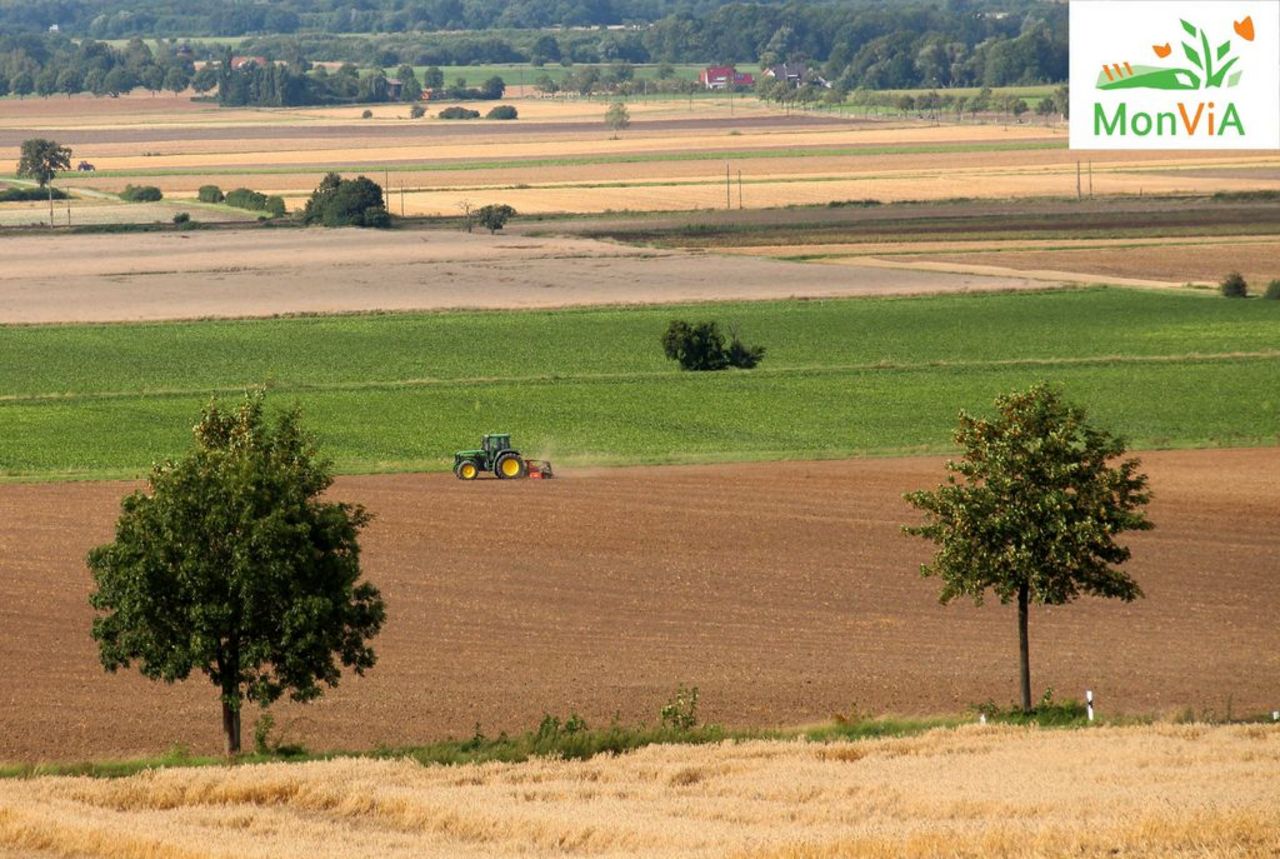Project
Regional research workshops for arable farming

Biodiversity promotion through improved cropping systems
Arable farmers are facing major challenges: On the one hand, they are struggling with resistance problems, the loss of crop protection products and new fertilizer regulations; on the other hand, there are species and biodiversity losses in the agricultural landscape. Hence, the question arises how arable farming systems can be further developed in the future. As a consequence, a concept for regional research workshops will be developed within the project.
Background and Objective
The question of the future development of arable farming systems is bothering many farmers. However, it is not expected that individual farmers or the industry will successfully develop and implement new systems. Individual farmers lack the resources to do so, and industry will primarily provide support where it can sell its products. Against this background, so-called participatory or on-farm research approaches are often called for, in which science and practice work more closely together. Therefore, the aim of this project is to develop a concept for practice research networks ("regional research workshops") in which extensive changes to production systems can be developed and tested. In these networks, researchers, advisors and farmers are to work together and integrate new elements into regional arable farming. Important aspects of these new methods are practicality and economic viability.
Approach
First, we will analyse and evaluate existing participatory respectively on-farm research approaches in order to be able to define cornerstones for the concept of regional research workshops. We will discuss these cornerstones with experts from consulting, practice, science and industry. Based on this, we will develop a set of requirements for a concept for the further development of cropping systems. We will then derive a concept from the requirements that comprises the necessary organizational framework as well as the operational implementation to further develop cropping systems. In turn, we will discuss the concept in workshops with potential cooperation partners from practice, science and consulting in order to improve it. At the end of the project, we will publish the concept.
Our Research Questions
The following research questions describe central aspects of the project:
- How should regional research workshops be organized so that farmers will participate in the long term?
- What has to be considered for the financing of research workshops and how can the financing be designed in such a flexible way that costs that can hardly be estimated in advance can be taken into account?
- Who are possible partners for the implementation of the concept?
- How can new farming systems be assessed in terms of their economic and environmental impacts?
Results
The analysis of previous participatory research networks has shown that they have usually studied specific individual issues or aimed at demonstrating solutions that are already suitable for practical application. The comprehensive further development of systems is very complex and has therefore been rather rare. For complex adaptations to be successfully developed and tested, a number of framework conditions must be met. These include, first of all, suitable human resources. Seven to eight farmers are particularly important, as well as a regional coordinator who organizes the collaboration. Since the solution approaches will differ from location to location, it is necessary to establish research workshops at different locations in Germany. This requires a superordinate structure to connect the regional activities and provide organizational and administrative support. Furthermore, the financial remuneration of farmers for their collaboration and the compensation of possible yield losses is essential, even if this is associated with challenges in the (financial) project planning, because the costs for testing further developed cropping systems can only be calculated ex-post. The project duration should be at least six, preferably ten years for comprehensive changes in arable farming.
The cropping systems should be further developed in the respective research workshops in an iterative process. Therefore, it is recommended that all farms of a research workshop test the further developed cropping systems on three to five arable fields each. In this way, more experience can be gained and more data can collected at the same time than if the systems are only implemented on selected farms.
Thünen-Contact

Involved Thünen-Partners
Involved external Thünen-Partners
- Julius Kühn-Institut - Bundesforschungsinstitut für Kulturpflanzen (JKI)
(Quedlinburg, Braunschweig, Groß Lüsewitz, Kleinmachnow, Deutschland)
Duration
11.2019 - 6.2022
More Information
Project status:
finished
Publications to the project
- 0
Wüstemann F, Witte T de (2024) “Research workshops“ for sustainable arable farming. Braunschweig: Thünen Institute of Farm Economics, 2 p, Project Brief Thünen Inst 2024/06a, DOI:10.3220/PB1708342449000
- 1
Wüstemann F, Witte T de (2024) „Forschungswerkstätten“ im Ackerbau. Braunschweig: Thünen-Institut für Betriebswirtschaft, 2 p, Project Brief Thünen Inst 2024/06, DOI:10.3220/PB1708342127000
- 2
Wüstemann F, Witte T de (2023) Konzept für "Forschungswerkstätten im Ackerbau". Braunschweig: Johann Heinrich von Thünen-Institut, 67 p, Thünen Working Paper 228, DOI:10.3220/WP1701075841000



![[Translate to English:] Logo des Bundesministerium für Ernährung und Landwirtschaft](/media/allgemein/logos/BMEL_Logo.svg)